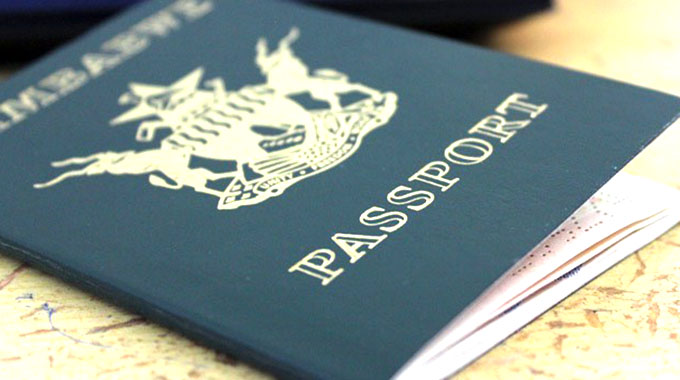Zimbabweans in South Africa are in a state of panic as they await a ruling from the courts on whether they can remain in that country despite the non-extension of Zimbabwe Exemption Permits (ZEPs).
The High Court Division in Gauteng, South Africa, was supposed to have ruled on the challenge filed last year by the Helen Suzman Foundation (HSF), a human rights organisation seeking to overturn a government decision not to prolong the ZEPs in 2021.
The South African government ordered Zimbabweans to move to other permits available within their country or depart at the end of 2022, HSF argued that the non-extension was unlawful and unreasonable.
South Africa then temporarily extended ZEP holders’ stay until June of this year, after which Zimbabweans are expected to return home.
In an interview with CITE, African Diaspora Global Network leader, Dr Vusumuzi Sibanda said people were still waiting for the High Court’s decision, which was causing concern among Zimbabweans because the June deadline was just around the corner
“Well, we are still awaiting the decision of the court. There is pandemonium because people are panicking from every angle, not knowing what exactly they should be doing because obviously the deadline is looming,” he said.
“People do not know how they will be able to proceed with work, considering they don’t have valid permits and they don’t know. It’s a reality now and dawned to many that (returning to Zimbabwe) is what might happen.”
To be fair, Dr Sibanda stated that the ruling was not ‘really’ delayed because there were numerous arguments to examine since several parties were interested in the case and filed their own reasons.
“Maybe the case was heard late due to the Home Affairs department which was never ready since last September. We are seeing a lot of people asking about waivers and what needs to be done. But you also see the VFS department, (official partner of the Department of Home Affairs in South Africa) on the waivers is no longer giving people dates on when they can apply. So, we’re not sure what exactly is happening,” said the migrant activist.
As a result, a majority of Zimbabwean migrants are ‘really’ concerned, according to Dr Sibanda.
“People are running all over the show every day. We’ve received a hoard of inquiries about what alternatives they may do. Others are thinking about their property, how they will secure their property. if these permits are not renewed. Others want to know if there are other alternatives that they may actually and resort to, because now it has become a reality to a lot of people that were still hopeful that maybe there is a change that might take place,” he said.
“But it is very clear that something is going to happen and people need to do something. So yes, we see quite a lot of movement and anxiety every day.”
Some Zimbabweans in South Africa who had applied for waivers said they were still waiting to hear the outcome of their applications.
“We received a message from Home Affairs last week notifying us that our waiver outcome will be sent via the email address we provided when we submitted to VFS. We wait and see,” said one applicant who requested anonymity due to the sensitivity of the situation.
In its legal challenge, case no 32323/20233, HSF was joined by a second applicant the Consortium for Refugees and Migrants in South Africa (CORMSA) as the second applicant in terms of an order of this court of September 16, 2022.
The relief claimed by HSF and CORMSA is for the decision to terminate the ZEPs be declared unlawful, unconstitutional and invalid.
Chairperson of the Zimbabwe Community in South Africa, Nicholas Ngqabutho Mabhena, said since most Zimbabwean migrants were employed in the informal economy, the anxiety will adversely affect them.
“As it is, we are already faced with the challenge around a lot of Zimbabweans in the hospitality sector and are not registered,” he said.
“Some bosses are refusing to pay them. This is the immediate challenge we have. They do not have unions and they do not have documents. The bosses are saying since they are not registered with the UIF (Unemployment Insurance Fund), they cannot pay them. We are trying to see how we can assist them.”
A majority of migrants work in precarious jobs in the hospitality industry, in the construction industry, domestic work or are self-employed as hawkers, running hair saloons or spaza shops.
In a social media debate, Zimbabweans said it was irresponsible of them to go home to a country that was known to be economically struggling while others pointed out how it was more painful to remain in South Africa without any idea of how they will survive and pay rent.
What has made the future of migrants in South Africa more uncertain has been the fortifying of the fence at the border between Zimbabwe and South Africa in Beitbridge spearheaded by the Department of Public Works and Infrastructure.
Meanwhile, Mabhena noted that the majority of the ZEP holders are breadwinners back in Zimbabwe and not knowing their fate was also affecting those back home.
“It is not only the holders of the ZEP that are going to be affected but also their families back in Zimbabwe. Because of this situation now, some employers will find Zimbabweans an easy target for exploitation and may reduce their income,” he said.

